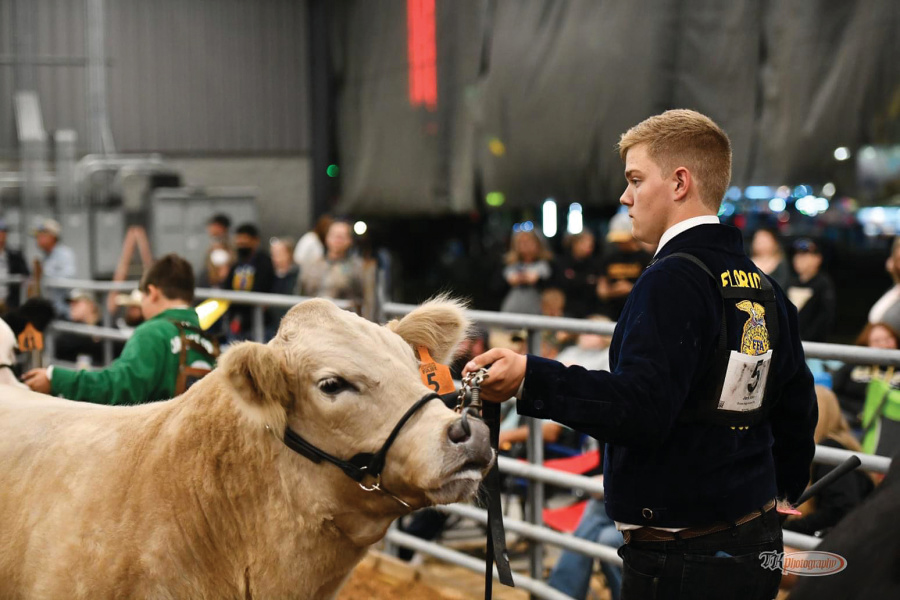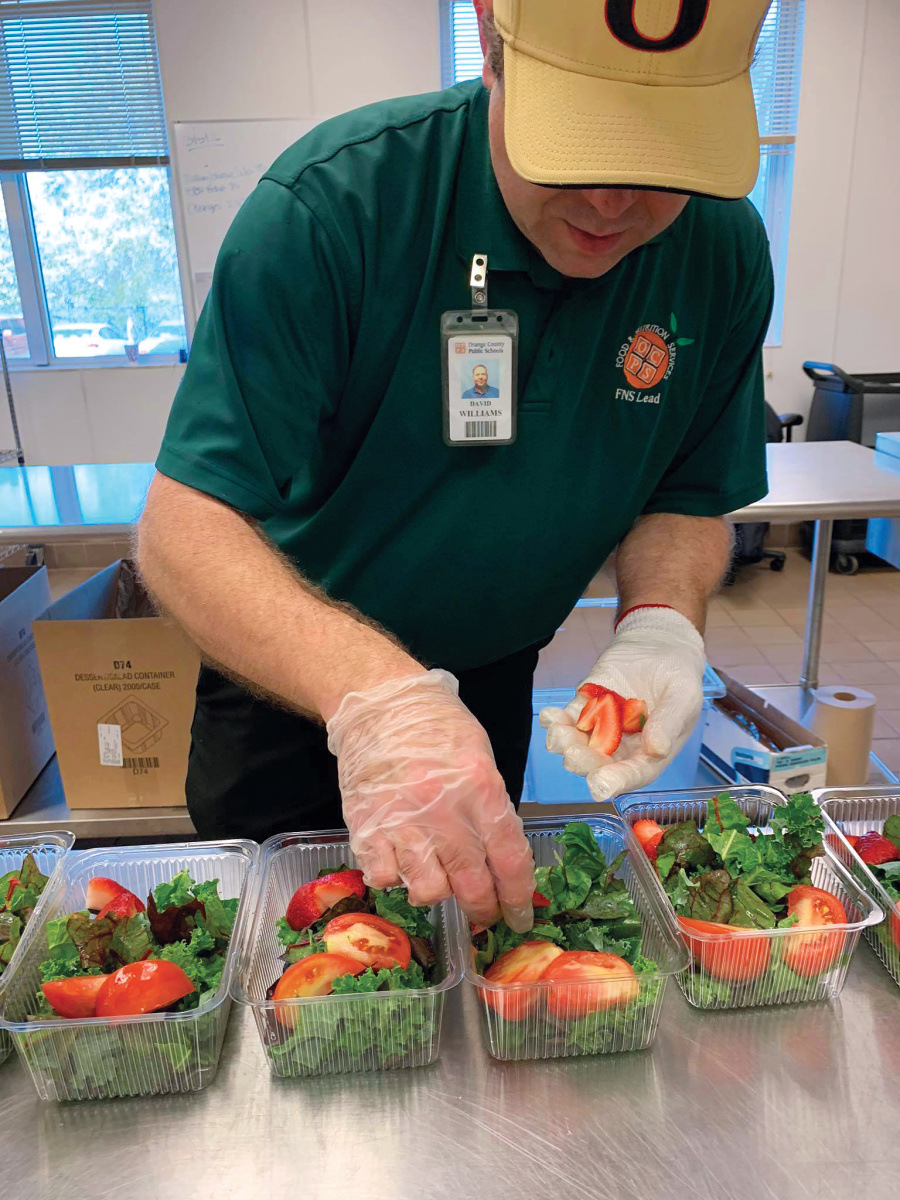
No matter the industry, education is vital to ensuring a competent workforce – and agriculture is no exception. Florida’s school administrators, educators and employers are finding that agriculture education programs provide students with a unique experience that prepares them for the workforce while teaching academics across a wide spectrum of subjects.
“The agriculture industry has the great responsibility of ensuring our citizens have access to a safe, abundant food supply,” says Keitha Bennett, director of Agriculture Education Services & Technology Inc. (AEST). “As our population increases, so do challenges for our industry, including worker shortages and the aging farmer demographic. It is imperative we recruit talented, skilled people to fill these employment gaps. Ag offers exciting, often overlooked, opportunities for young people entering the workforce.”

AEST was developed as a subsidiary of the Florida Farm Bureau Federation. The organization identified a gap between the agriculture industry’s expanding needs and qualified individuals to meet those needs. So, AEST established industry-driven assessments of ag career fields in the form of industry certifications that employers could view as trusted, reliable credentials. Each certification reflects a different agricultural sector and the skills and competencies necessary for success in that field.
“We serve as a bridge to help connect certified students with real job opportunities in agriculture and related industries,” Bennett says. “We are creating awareness of job opportunities in the agriculture industry and providing employers a way to identify those who have verified their skills and knowledge through our certification process. Even students who do not choose agriculture as a career, but will become consumers and voters, gain knowledge about agriculture that will affect decision-making someday.”
See more: How FFA and 4-H Help Students Prepare for the Future
Students Excel
Agriculture education touches several subject areas, including math, science, engineering, language arts and technology. Students may easily apply what they learn in the classroom through FFA, supervised agricultural experiences (SAEs) and industry certifications for a complete experience that prepares them for future success.
Amy Anderson started working with AEST seven years ago as the agriculture teacher at Ocoee Middle School. She taught one agriscience foundations class and quickly began testing students to see how early they could successfully earn certifications.
“I had a few students just test the waters with certification to see how they would do, and they excelled,” she says, noting she moved on to become the high school ag teacher about five years ago. “I have seen students enter the job force more prepared because of these industry certifications. They enter jobs with more skills, knowledge, and job training and outperform others in these areas. I am certifying students in animal science, agriculture systems, ag mechanics, forestry and as associates of agriculture.”

Industry certifications have become a central component of the Florida Career and Professional Education Act passed by the Florida legislature in 2007. The purpose of the act is to provide a statewide planning partnership between the business and education communities to attract, expand and retain targeted, high-value industries and to sustain a strong, knowledge-based economy. Industry certifications earned by secondary students are included in the high school and middle school grading formula in Florida, elevating their importance to school officials and administrators.
“Industry certifications provide students with an advantage in the job search after graduation,” Bennett says. “Listing an industry certification on a job application or resume tells an employer that a candidate has demonstrated certain knowledge and skills. It can help a candidate stand out from other applicants. They also can talk about their certification during an interview as a way to tell their story and explain their skills, knowledge and commitment to the industry.”
Since 2011, AEST has issued more than 20,000 industry certifications in 11 agriculture areas across Florida and Louisiana. AEST continues to expand certification offerings into new fields as needs are recognized and through industry recommendations.
“I encourage other educators to make connections with local businesses and help link students with potential jobs. Get to know the businesses and their needs so that you can see what they want in employees,” Anderson says. “This will help you as educators better prepare students and have a win-win situation for everyone.”
Bennett encourages school administrators, educators and students to utilize AEST’s job board, Hire.Ag. This free resource connects certified individuals with employment opportunities within the industry. Employers post job openings and AEST-certified individuals can link to the job application. For information, visit AEST.ag/certify.
20 Ag Careers That May Surprise You
According to a report from the U.S. Department of Agriculture, biochemists, biophysicists, veterinarians and environmental engineers in agricultural applications are quickly becoming agriculture’s most in-demand jobs.
In fact, the agricultural and food sectors were responsible for 22.2 million full- and part-time jobs in 2019, or 10.9% of total U.S. employment.
It makes sense that these unique off-the-farm jobs are leading the way, as only 2.6 million ag jobs, or 1.3% of U.S. employment, are attributed to direct, on-farm employment.
Learn about some of the promising ag careers students might normally overlook:
1. Biochemist or biophysicist
2. Large animal veterinarian
3. Computational biologist/bioinformatician
4. Retail buyer or purchasing consultant
5. Agricultural mechanic
6. Construction manager or architect
7. Environmental engineer or scientist
8. Environmental compliance manager
9. Agriculture teacher
10. Food scientist, technologist or engineer
11. Public relations specialist
12. Agricultural engineer
13. Enzymologist
14. Molecular biologist
15. Genetic researcher
16. Weather and crop production analyst
17. Supply chain manager
18. Real estate analyst
19. Groundskeeper
20. Land surveyor









NSDOAF (National Society Descendants of American Farmers) gives scholarships to Sophomores and up college students majoring in one of the many fields of Agriculture. Check out the Scholarship portion of the NSDOAF website. https://www.nsdoaf.com/scholarships
Next scholarship applications are due before Jan 15, 2022. We’ve given away $50,000 at $2,000 a clip in three years!